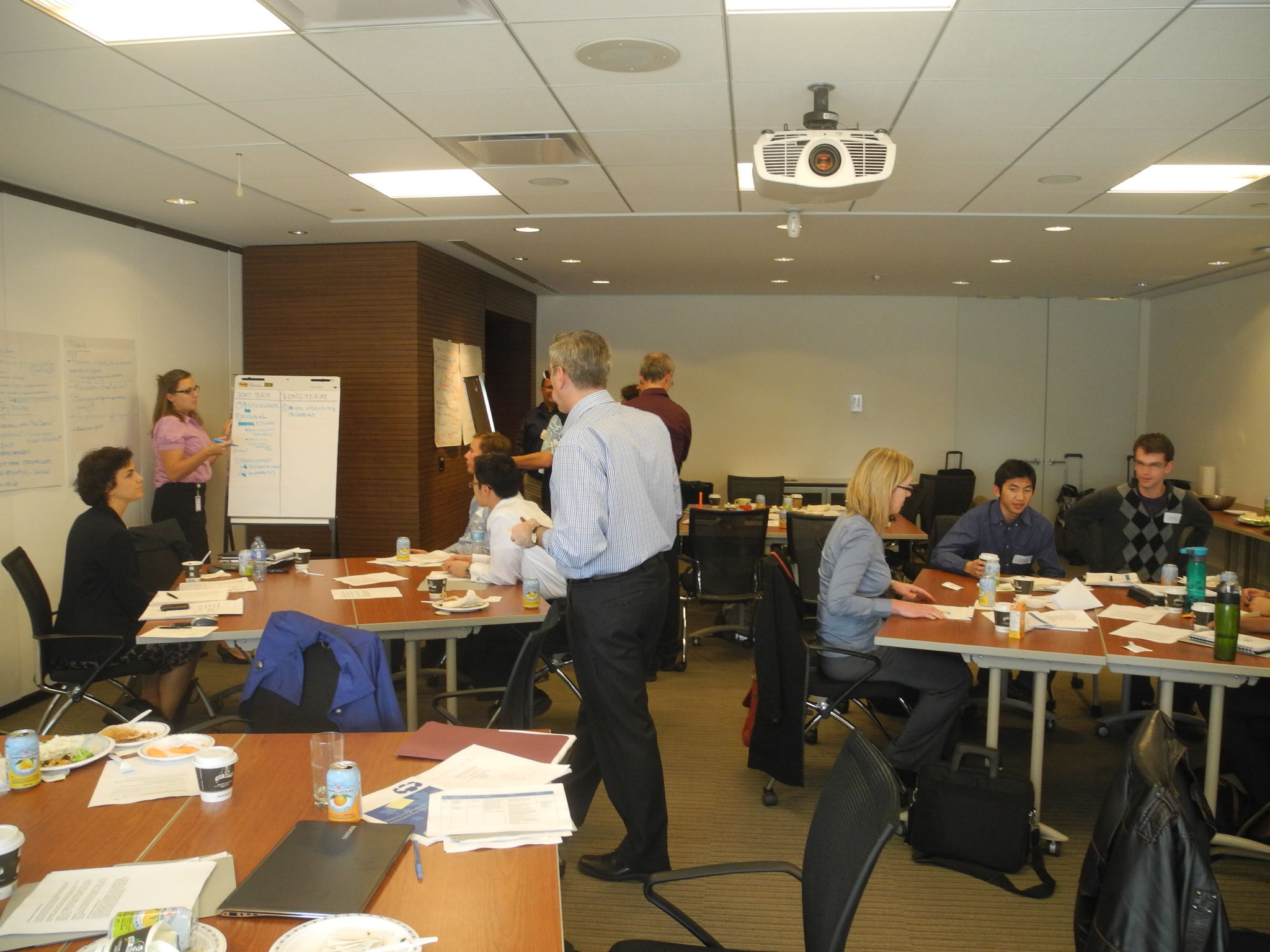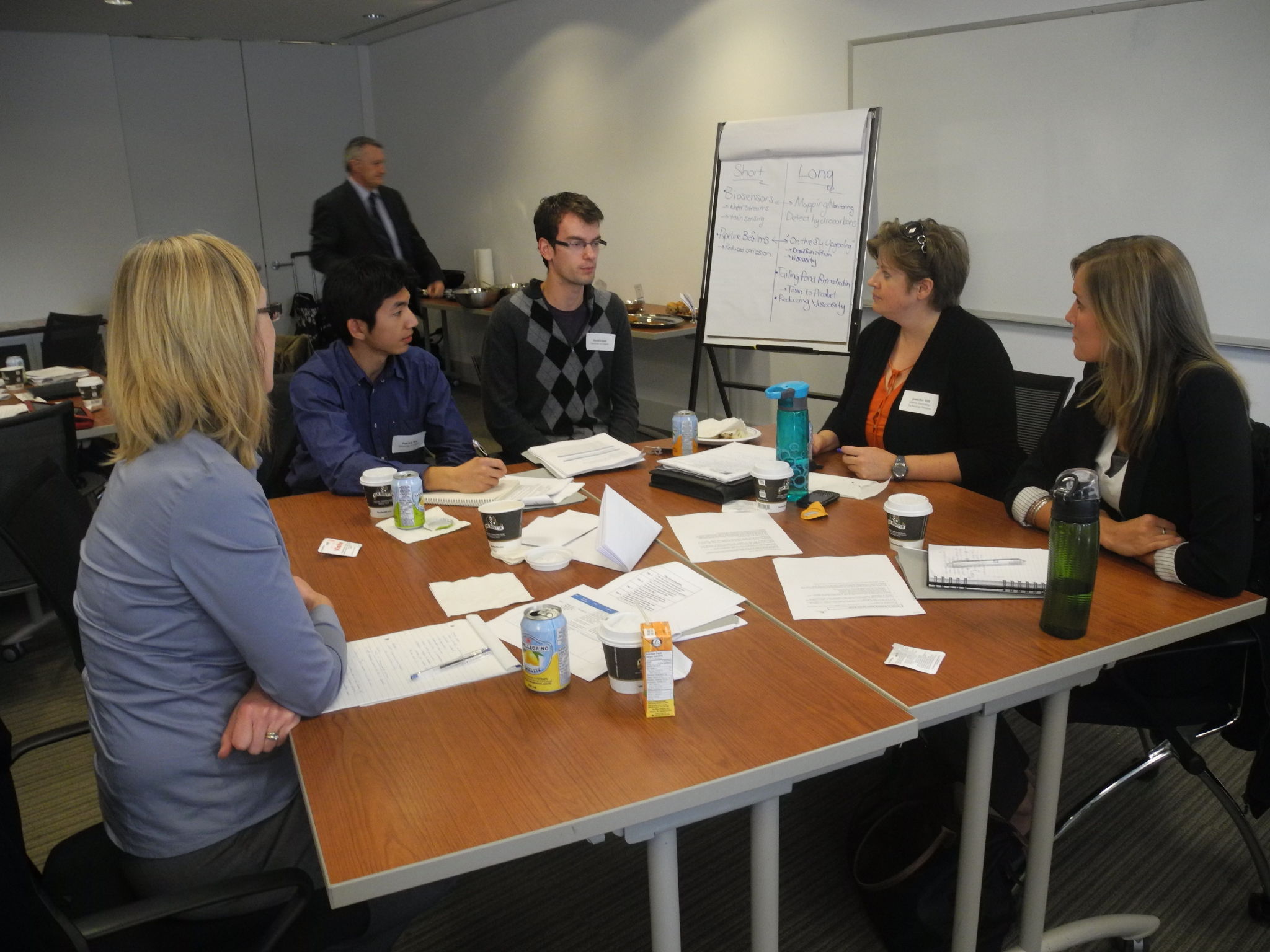Team:Calgary/Project/HumanPractices/Collaborations
From 2012.igem.org


Hello! iGEM Calgary's wiki functions best with Javascript enabled, especially for mobile devices. We recommend that you enable Javascript on your device for the best wiki-viewing experience. Thanks!
Initiative

The Oilsands Leadership Initiative - OSLI
The Oil Sands Leadership Initiative (OSLI) is a collaborative network of oil sands companies (ConocoPhillips Canada, Nexen, Shell, Statoil, Suncor Energy, and Total E&P). As a collective these companies have come together to improve the oil sands industry's reputation by demonstrating and communicating environmental, social and economic performance and technological advancements. OSLI's vision is to achieve world-class environmental, social and economic performance in developing this world-scale oil sands resource in Northern Alberta. In addressing oil sands challenges, they have divided their project work into the areas of land stewardship, water management, technology breakthrough and sustainable communities.
OSLI has funded iGEM projects which pertain to the oil and gas sector for several years and have greatly supported the growth of synthetic biology in Canada and abroad. As a sponsor of the University of Calgary iGEM team, OSLI has provided our team with an opportunity to interface with oil sands companies and interest groups which greatly aids the development of our project.
A Synthetic Biology Dialogue
In September our iGEM group was invited to a rare and important opportunity to share ideas on synthetic biology in an industrial oil sands discussion. A synthetic biology/microbiology workshop was hosted on September 27, 2012 at the ConocoPhillips Canada office in Calgary, AB, Canada. The goal of the workshop was to bring together industry representatives and researchers to discuss the current state of research in both petroleum microbiology and synthetic biology. Furthermore the hope of the discussion was to identify areas of common interest for collaboration. One of the focuses of the meeting was to determine what barriers or threshold conditions that synthetic biology technologies must meet in order to be considered by oil sands companies for their operations. Due to the relevance of this discussion to our project, our team sent two representatives to actively participate in this discussion and to identify areas where FRED and OSCAR could benefit the oil industry as well as identify areas where our projects should change to better work in an oil sands application.
What Did We Discuss?
During the OSLI workgroup, we met with approximately 30 professionals from various backgrounds including industry, government , academic institutions, researchers and technology enthusiasts. Various conversations through e-mail had led up to this meeting where we discussed the motivations and direction in which synthetic biology might possibly be applied to industry. Our group was proud to be able to provide the synthetic biology introduction to these individuals and explain the importance of synthetic biology and iGEM. From this we began to discuss the potential relevance of synthetic biology to the oil sands’ industry. The day continued with group discussions of the different forms of microbiology and synthetic biology technologies which could potentially be applied to the oil sands. Our group was happy to discover that numerous groups had identified biosensor and tailing ponds remediation technologies as areas that synthetic biology could impact the oil sands. By the end of the day the collective group had come to the consensus that the most important technology platforms to continue to look into and which may provide early benefits to the oil industry are microbial degradation/conversion systems and biosensor systems.
What Did We Learn?
There is a need for synthetic biology technologies in the oil sands. These technologies must be feasible and provided needed benefits to the oil sands. These benefits should include the increase in oil recovery, the reduction in toxic compound production, remediation of oil sands, production of biosolvents including biosurfactants, biofuels, etc. Biosensors like FRED and Bioreactors like OSCAR are trending new technologies which could benefit the oil sands.
 "
"

